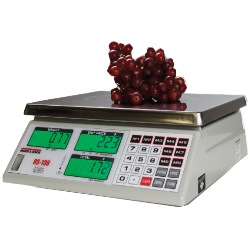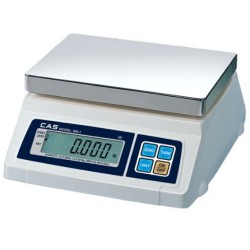Food processing is an integral part of modern life, influencing what we eat, how we eat, and the convenience of our meals. Behind every delicious dish and packaged product lies a complex web of machinery, technology, and skilled labor. While food processing has evolved significantly over the years, it continues to face numerous challenges, from food safety to sustainability. This article explores the world of food processing, focusing on the critical role that scales play in overcoming these challenges.
The Importance of Food Processing
Food processing involves transforming raw ingredients into food products suitable for consumption. This transformation encompasses various techniques, including cutting, grinding, mixing, cooking, and packaging. The food processing industry is essential for several reasons:
-
Food Safety: Food processing helps eliminate or reduce harmful microorganisms, making food safer to consume. Proper processing techniques, such as pasteurization, can extend the shelf life of products.
-
Convenience: It allows for the creation of ready-to-eat meals, frozen foods, and packaged goods, saving consumers time and effort in meal preparation.
-
Variety: Food processing enables the production of a wide variety of food products, allowing consumers to enjoy a diverse range of flavors and textures.
-
Waste Reduction: Processing can utilize parts of ingredients that would otherwise go to waste, reducing food waste.
-
Global Distribution: Processed foods are easier to transport and have a longer shelf life, making them suitable for international distribution.
Despite these advantages, food processing is not without its challenges, which we will explore in detail.

Challenges in Food Processing
-
Food Safety: Ensuring food safety is paramount in the food processing industry. Contaminated products can lead to serious health risks and costly recalls. Foodborne illnesses, allergen cross-contamination, and the threat of pathogens like E. coli and Salmonella pose constant challenges.
-
Quality Control: Maintaining consistent product quality can be challenging, especially when dealing with natural variations in raw ingredients. Customers expect uniformity in taste, texture, and appearance.
-
Sustainability: The food processing industry is under increasing pressure to reduce its environmental footprint. This includes minimizing water usage, energy consumption, and waste production.
-
Regulatory Compliance: The industry must navigate a web of regulations and standards to ensure compliance with food safety, labeling, and packaging requirements. Non-compliance can result in hefty fines and damage to a brand’s reputation.
-
Supply Chain Disruptions: Natural disasters, geopolitical tensions, and unforeseen events can disrupt the supply chain, affecting the availability of raw materials and the distribution of finished products.
The Role of Scales in Food Processing
One often underestimated yet crucial element in food processing is scales. Accurate weighing and measurement are vital at various stages of the processing line. Here’s how scales contribute to overcoming the challenges mentioned above:
-
Food Safety and Quality Control:
- Portion Control: QC Scales ensure that each product is consistently portioned, reducing the risk of undercooked or overcooked items.
- Ingredient Measurement: Precise measurement of ingredients, including spices, additives, and flavorings, guarantees the desired flavor profile and nutritional content.
- Checkweighing: Scales can quickly identify underweight or overweight packages, preventing subpar products from reaching consumers.
-
Sustainability:
- Reduced Waste: Accurate portioning reduces food waste by minimizing overproduction and product rejects.
- Energy Efficiency: Scales can be integrated into automation systems that optimize cooking and packaging processes, reducing energy consumption.
- Resource Management: Monitoring ingredient usage through scales helps in resource optimization, conserving water, and reducing material waste.
-
Regulatory Compliance:
- Traceability: Scales can be integrated with data management systems to provide detailed records of ingredient usage, aiding in regulatory compliance and recall management.
- Labeling Accuracy: Precise weighing ensures that product labels accurately reflect the content, helping meet labeling requirements.
-
Supply Chain Management:
- Inventory Control: Counting Scales assist in managing inventory levels by accurately tracking raw materials and finished products.
- Demand Forecasting: Data collected from scales can inform demand forecasting, helping processors adapt to supply chain disruptions more effectively.

Food processing is an indispensable part of our lives, providing us with safe, convenient, and diverse food options. However, it faces numerous challenges, from ensuring food safety to addressing sustainability concerns. Scales play a crucial, albeit often overlooked, role in addressing these challenges.
Accurate weighing and measurement provided by scales help maintain food safety and quality, reduce waste, support regulatory compliance, and improve supply chain management. As the food processing industry continues to evolve, integrating advanced weighing technology into processing lines will be essential to meet the demands of consumers and regulators alike.
Scales are not just instruments for measuring weight; they are essential tools in the quest for safer, more sustainable, and higher-quality food products. As technology advances, scales will undoubtedly continue to play a pivotal role in shaping the future of food processing.